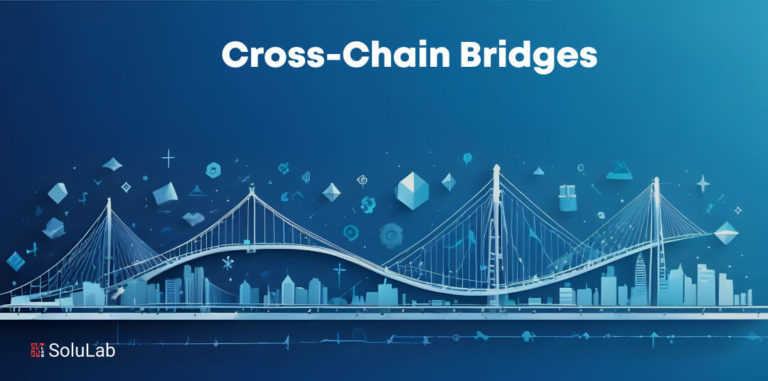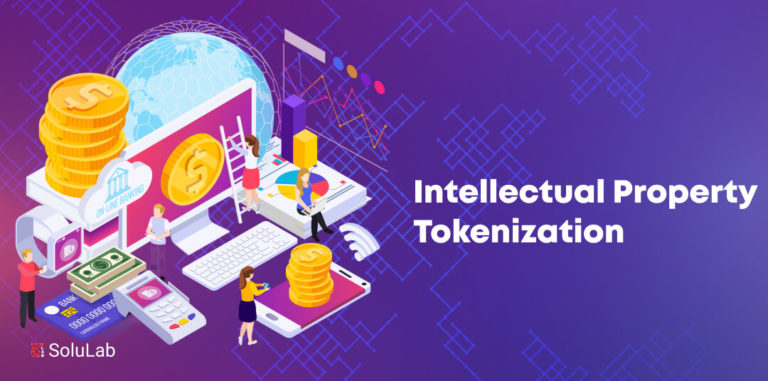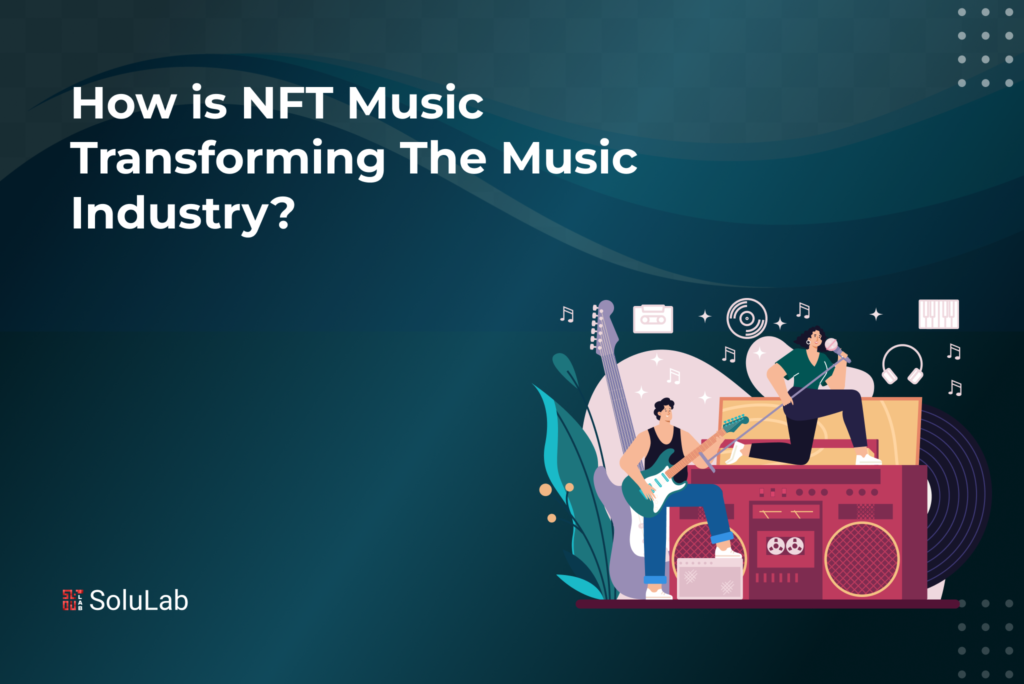
A ground-breaking phenomenon has evolved, challenging the status quo of ownership and authenticity in a world where digital products frequently feel ephemeral and readily duplicable. Here we have Non-Fungible Tokens (NFTs), the revolutionary digital assets that have revolutionized several sectors. NFTs have ignited a flurry of enthusiasm, changed how we see and value creative works, and now even extend to music.
The attractiveness of NFTs resides in their capacity to bring authenticity and verifiable ownership to the digital sphere. These blockchain-powered tokens open up a world of opportunities for musicians, artists, and other creators looking to transform their fields. The distinction between the tangible and the ethereal is blurred by NFTs, resulting in a dynamic environment where music, art, and culture flourish.
So, what exactly are NFTs, and why have they skyrocketed in popularity? In this article, we delve into the captivating world of NFT music and explore how this groundbreaking innovation is reshaping the very foundations of the music industry. Buckle up as we embark on a journey through the intersection of technology, creativity, and ownership, where NFTs are leaving an indelible mark on the symphony of sound.
What is NFT Music?
The rise of Non-Fungible Tokens (NFTs) has garnered significant attention across various industries, including art, gaming, and collectibles. NFTs are unique digital assets that utilize blockchain technology to verify their authenticity, ownership, and provenance. Unlike cryptocurrencies such as Bitcoin or Ethereum, which are fungible and can be exchanged on a one-to-one basis, NFTs represent distinct items with individual characteristics and values.
NFTs have gained popularity due to their ability to solve longstanding challenges in the digital realm. By leveraging blockchain’s decentralized ledger system, NFTs provide a secure and immutable way to establish ownership and uniqueness for digital assets. Each NFT contains metadata that defines its attributes, such as artwork, music, videos, or virtual goods.
The popularity of NFTs has surged in recent years, driven by several factors. One key driver is the growing interest of artists, musicians, and creators who see NFTs as a new means of monetizing their digital creations. The ability to tokenize and sell unique digital assets directly to fans and collectors has opened up exciting opportunities for revenue generation.
Statistics further demonstrate the rising popularity of NFTs. According to data from NonFungible.com, the total sales volume of NFTs reached a staggering $2.5 billion in the first half of 2021 alone, marking a significant increase compared to previous years. Furthermore, notable NFT sales, such as Beeple’s artwork “Everydays: The First 5000 Days” selling for $69 million at auction, have garnered widespread media attention and contributed to the growing recognition of NFTs.
Key Characteristics of NFT Music
NFT music represents a groundbreaking application of Non-Fungible Tokens (NFTs) in the music industry. It combines the power of blockchain technology with the artistic expressions of musicians and creators, allowing them to tokenize and authenticate their music as unique digital assets. By doing so, music NFTs introduce a new paradigm of ownership, monetization, and fan engagement in the digital music landscape.
At its core, NFT music leverages the underlying principles of NFTs. Each NFT represents a specific piece of music, whether it’s a song, an album, a concert ticket, or even an exclusive experience. These digital tokens are built on top blockchain platforms like Ethereum, ensuring transparency, security, and immutability of ownership records.
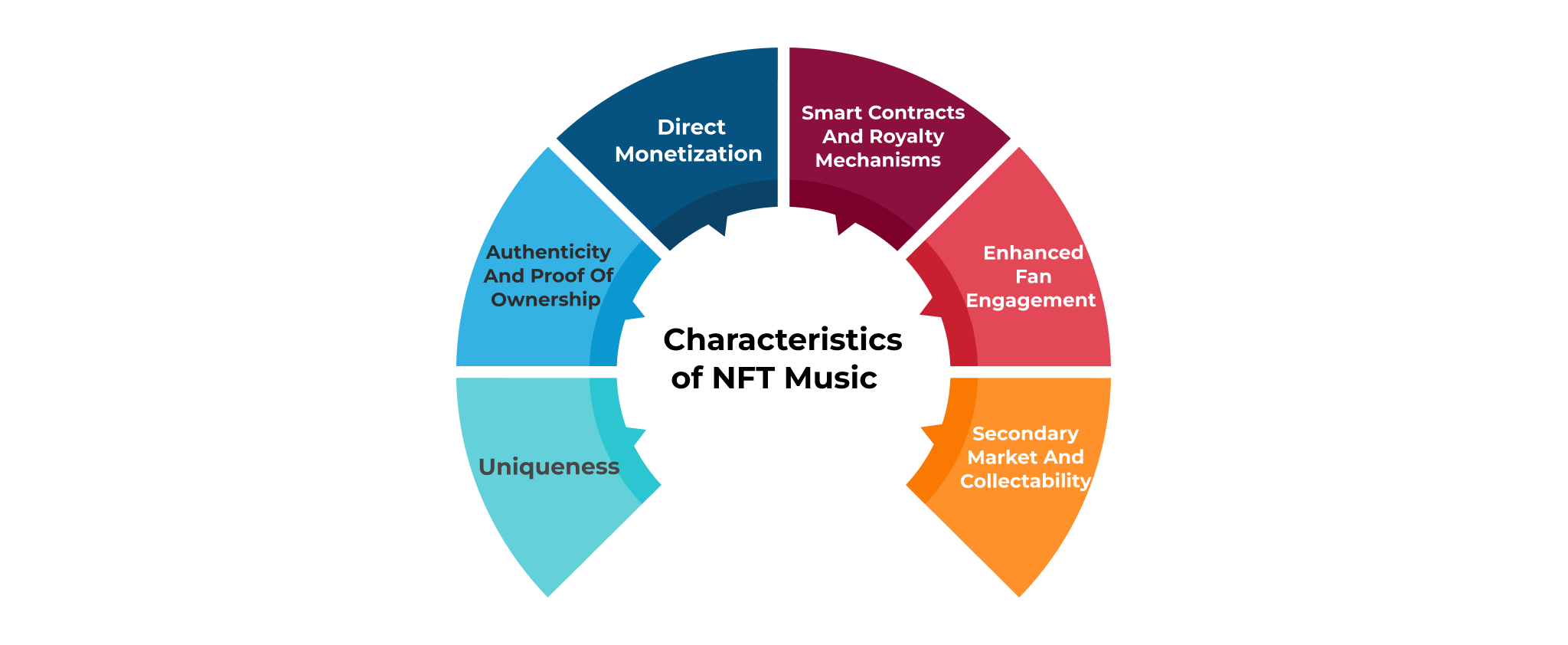
The main characteristics of NFT music are as follows:
- Uniqueness: Each NFT music token is distinct and unique, differentiating it from traditional music files or streams. This uniqueness is achieved through the token’s metadata, which contains information about the music, its creator, and any associated digital artwork or multimedia.
- Authenticity and Proof of Ownership: NFT music provides an unalterable record of ownership and provenance. The blockchain verifies and maintains a transparent ledger of ownership history, allowing artists and fans to track the entire lifecycle of a music NFT.
- Direct Monetization: NFTs in music enables artists to directly monetize their work, bypassing traditional intermediaries such as record labels or streaming platforms. Artists can sell their music NFTs directly to fans, collectors, or investors, creating new revenue streams and empowering independent musicians.
Read Our Blog Post: Metaverse NFT – Foundation Of Next Blockchain Revolution!
- Smart Contracts and Royalty Mechanisms: Smart contracts, embedded within NFTs, facilitate automatic royalty payments to artists. Whenever an NFT music token is resold in the secondary market, the smart contract can be programmed to distribute a percentage of the proceeds back to the original creator. This feature provides ongoing financial support for artists and incentivizes their fan base to support their work.
- Enhanced Fan Engagement: NFT music allows artists to offer exclusive experiences, content, and perks to their fans. This may include limited edition music releases, backstage passes, virtual meet-and-greets, or unique merchandise. Fans can acquire these exclusive items, strengthening their connection with their favorite artists and supporting them directly.
- Secondary Market and Collectibility: NFT music introduces a vibrant secondary market for trading and reselling digital music assets. Just like physical collectibles, music NFTs can gain value over time, creating opportunities for collectors and investors to participate in the music economy.
By embracing NFT music, artists can redefine the notion of ownership, connect directly with their fans, and explore innovative revenue streams. This transformative concept opens up a world of possibilities, bridging the gap between art, technology, and music in ways that were previously unimaginable.
Redefining Music
In the ever-evolving landscape of the music industry, a new revolution has taken center stage—NFT music. Non-Fungible Tokens (NFTs) are transforming the way we perceive and experience music, redefining the industry from the ground up. In this article, we explore the captivating world of NFT music and the myriad of ways it is reshaping the music industry as we know it.
-
Direct Monetization and Revenue Opportunities:
NFT music provides artists with unprecedented opportunities for direct monetization. By tokenizing their music as unique digital assets, artists can sell their creations directly to fans, cutting out intermediaries such as record labels or streaming platforms. This allows artists to retain a larger portion of their earnings and have more control over their creative output. An excellent example of this is Kings of Leon, an American rock band, who released their latest album as an NFT, allowing fans to purchase limited edition tokens that granted access to exclusive perks and content.
-
Enhanced Fan Engagement:
NFT music enables artists to connect with their fans on a deeper level. By offering exclusive experiences, content, and perks through NFTs, artists can foster a sense of community and reward their most dedicated supporters. Imagine owning an NFT that grants you backstage access to your favorite artist’s concert or a virtual meet-and-greet. Such experiences not only create unforgettable memories for fans but also provide artists with a means to cultivate and strengthen their fan base.
-
Unprecedented Ownership and Collectibility:
NFT music introduces a whole new dimension of ownership and collectibility. Each NFT represents a unique piece of music, making it akin to a digital collectible or a limited edition item. This scarcity and exclusivity drive the value of NFT music, allowing artists to create additional revenue streams through secondary market sales. Notable examples include the sale of NFT music by artists like 3LAU and Blau, who generated millions of dollars by auctioning off exclusive music and related experiences as NFTs.
Read Our Blog: Things you need to know about NFT Marketplace
-
Empowering Independent Artists:
NFT music levels the playing field for independent artists, enabling them to compete with established acts and gain recognition on their own terms. Traditionally, breaking into the music industry was a daunting task due to the dominance of major record labels. However, NFT music democratizes the industry by allowing independent artists to showcase their talent, build a dedicated fan base, and monetize their work directly. With platforms like Audius and Foundation, independent musicians have found newfound success and audience engagement.
-
Innovative Revenue Streams:
NFT music opens up innovative revenue streams for artists beyond traditional album sales or streaming royalties. Artists can explore unique offerings like one-of-a-kind concert tickets, VIP experiences, or even exclusive rights to future releases. For instance, DJ and producer Steve Aoki sold an NFT that granted the buyer the opportunity to collaborate on a new song. These unconventional revenue models provide artists with additional income sources and allow fans to actively participate in the creative process.
-
Preservation of Intellectual Property:
NFT music brings a new level of security and authenticity to intellectual property in the digital realm. Through blockchain technology, the ownership and provenance of NFTs are permanently recorded, ensuring artists’ rights are protected. This addresses longstanding issues of piracy and unauthorized use of music, providing artists with greater control over their work and ensuring fair compensation for their creative endeavors.
Market Potential of NFT Music
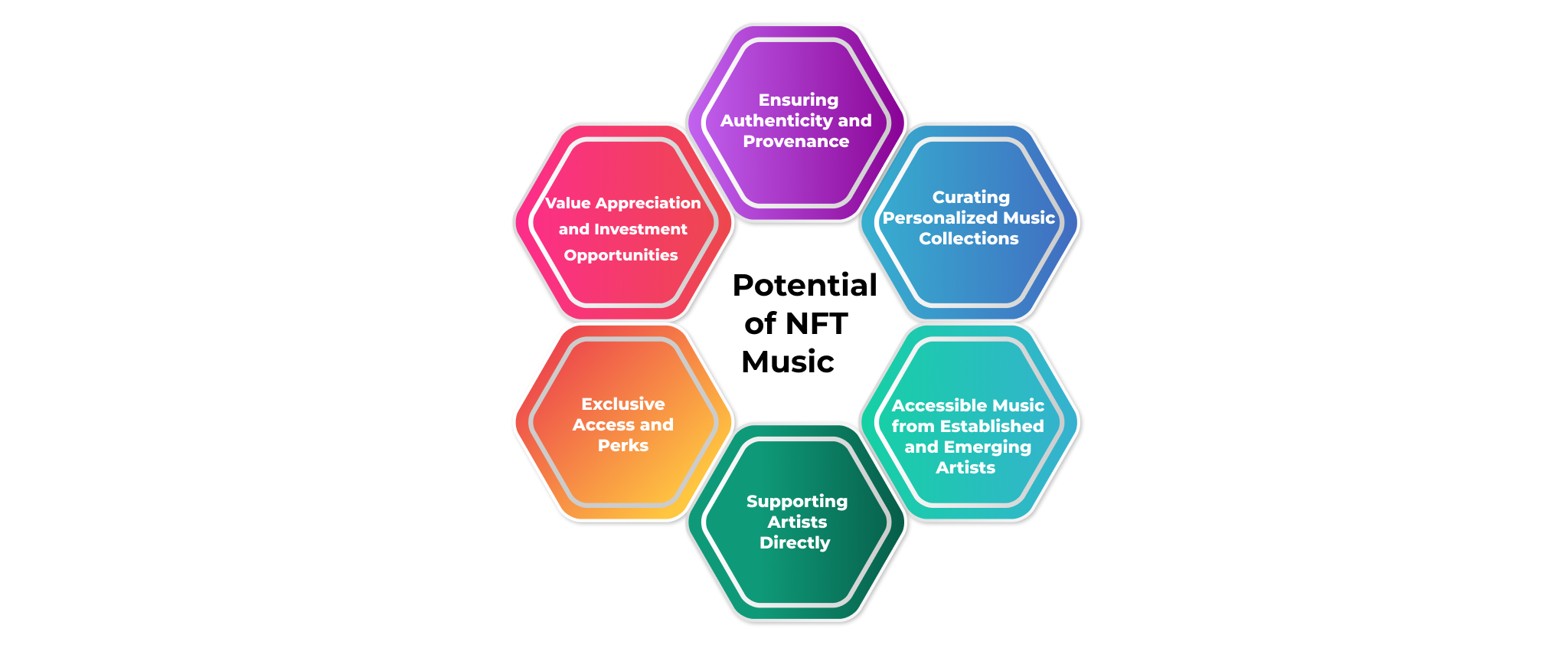
The resale and secondary market potential of NFT music introduces exciting implications for music fans and collectors, revolutionizing the way they engage with and value music. Let’s delve into these implications and explore how NFT music distribution transforms the landscape for fans and collectors alike.
-
Value Appreciation and Investment Opportunities:
NFT music introduces a new dimension of value appreciation for music collectors. Just as physical collectibles gain value over time, unique music NFTs have the potential to increase in worth, driven by scarcity, demand, and the artist’s reputation. This creates opportunities for collectors to invest in NFT music, with the possibility of significant returns on their investment. As the secondary market for NFT music grows, collectors can trade, sell, or hold onto their digital assets, participating in a vibrant ecosystem of music value.
-
Exclusive Access and Perks:
Music NFTs often come bundled with exclusive access and perks, providing additional incentives for fans and collectors. Owning an NFT may grant holders special privileges such as early access to new releases, VIP concert experiences, or meet-and-greets with artists. This fosters a sense of exclusivity and rewards loyal fans, elevating the overall fan experience. Music collectors can indulge in unique opportunities and enjoy personalized interactions with their favorite artists, creating unforgettable memories.
-
Supporting Artists Directly:
NFT music industry enables fans and collectors to support artists directly through secondary market transactions. When an NFT music token is resold, artists can receive a percentage of the resale value through smart contracts. This creates a continuous revenue stream for artists, ensuring they benefit from the increasing value of their creations in the secondary market. Fans and collectors can take pride in directly supporting their beloved artists and contributing to their ongoing success.
Check Out Our Press Release: SoluLab Honored By GoodFirms as Winner of the Trusted Choice Award 2023
-
Accessible Music from Established and Emerging Artists:
The secondary market for NFT music provides an avenue for fans and collectors to access music from both established and emerging artists. Previously, exclusive content or limited editions were often reserved for a select few. However, with NFT music, fans can acquire unique music pieces and experiences directly from their favorite artists, regardless of their fame or record label affiliations. This creates a more inclusive and diverse music ecosystem, fostering discovery and supporting independent artists.
-
Curating Personalized Music Collections:
NFT music market allows collectors to curate personalized digital music collections tailored to their individual tastes and preferences. Collectors can build portfolios of NFTs representing their favorite songs, albums, or iconic moments in music history. These collections serve as digital archives, offering a unique way to showcase their passion for music and engage with a diverse range of artists and genres. Collectors can immerse themselves in the artistry, narratives, and significance behind each NFT music token they acquire.
-
Ensuring Authenticity and Provenance:
One of the key advantages of NFT and music is its ability to establish authenticity and provenance. Collectors can verify the legitimacy and origin of each NFT through the blockchain, ensuring they possess an authentic piece of music history. This eliminates concerns of counterfeit or unauthorized copies, providing peace of mind to collectors and bolstering the value and desirability of their NFT music collections.
The resale and secondary market potential of NFT music revolutionizes the experience for music fans and collectors. It offers the thrill of investing in unique music assets, grants exclusive access and perks, supports artists directly, expands access to diverse music offerings, facilitates personalized curation, and ensures the authenticity and provenance of digital music collectibles. NFT music transforms the role of fans and collectors, making them active participants in the music ecosystem, while creating a dynamic marketplace that enriches the overall music experience.
Concluding Remarks
NFT music marketplace development is revolutionizing the music industry by empowering artists, enhancing fan engagement, and creating novel revenue streams. It opens up a world where artists can directly monetize their creations, forge deeper connections with fans, and redefine the very concept of ownership. As the industry continues to evolve, NFT music holds the potential to reshape how we create, experience, and cherish music for generations to come.
SoluLab specializes in developing comprehensive NFT marketplaces from scratch, leveraging its extensive expertise in various NFT solutions, including artwork, digital collectibles, gaming, and asset tokenization. Their renowned NFT marketplace development services offer feature-rich offerings and meticulous attention to detail. Businesses can establish their own customized white label NFT marketplace platform with support for multiple blockchains through SoluLab’s services, enabling seamless bidding and buying experiences for buyers, allowing them to trade their NFTs effortlessly. To get started, contact SoluLab today.
FAQs
1. What is an NFT in the context of music?
An NFT (Non-Fungible Token) is a digital asset that represents ownership or proof of authenticity of a unique item or piece of content. In the context of music, an NFT can represent ownership or rights to a specific song, album, or other musical content.
2. How does NFT music work?
NFT music works by leveraging blockchain technology to create a digital certificate of ownership for a piece of music. The NFT is minted on a blockchain platform, typically using a smart contract, which contains information about the music, its creator, and the terms of ownership. This certificate can then be bought, sold, or traded on various NFT marketplaces.
3. What are the benefits of NFT music for musicians/artists?
NFT music offers several benefits for artists, including the ability to monetize their music directly, maintain control over their intellectual property, and receive a share of future revenue generated from resales. NFTs can also enable direct interaction between artists and fans, fostering a more direct and sustainable relationship.
4. How does NFT music development impact the music industry?
The development of NFT music has the potential to reshape the music industry by providing new revenue streams and business models. It allows artists to bypass traditional intermediaries, explore alternative funding mechanisms, and engage with their fan base in innovative ways. However, it also raises questions about copyright, royalty structures, and the impact on traditional music distribution models.





